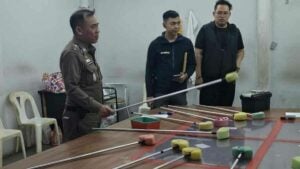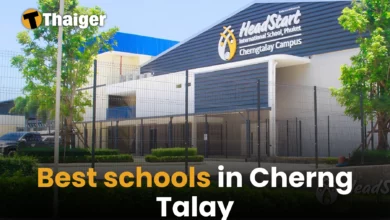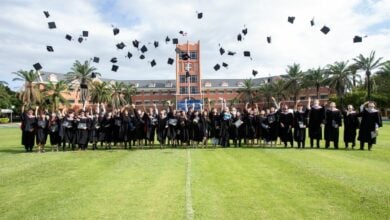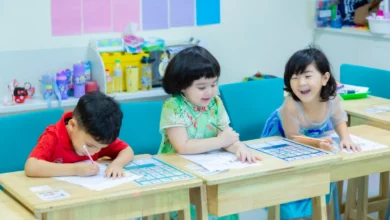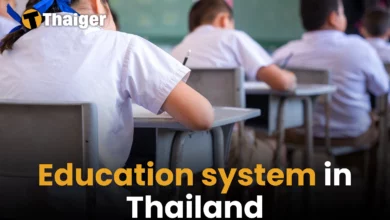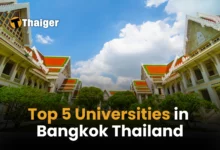Revolutionising Thai schooling: The AI game changer
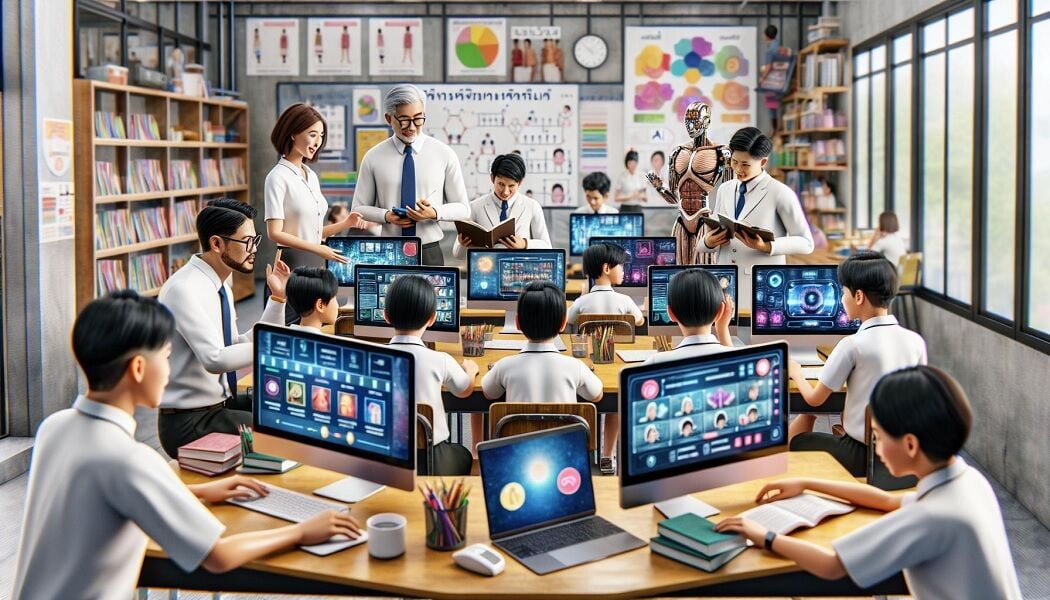
In Thailand, the wave of artificial intelligence (AI) is reshaping the educational landscape in ways previously unimaginable. It’s not just about integrating new technology into classrooms; it’s about redefining the entire learning process. As you dive into this transformative journey, you’ll discover how AI is not only enhancing teaching methods but also empowering students and educators alike with innovative tools and approaches.
The push towards incorporating AI into Thai education signals a significant shift towards future-ready learning. With initiatives aimed at equipping both teachers and students with AI knowledge and tools, the goal is clear: to foster a generation of super learners. Through the lens of AI, education in Thailand is set to transcend traditional boundaries, promising a future where learning is more accessible, engaging, and tailored to individual needs.
Impact of AI on education in Thailand
Implementing AI in traditional teaching methods
In Thailand, the integration of Artificial Intelligence (AI) is transforming traditional teaching methods in profound ways. Picture a classroom where AI tools assist teachers, streamlining tedious administrative tasks and allowing them to focus more on teaching. These technologies enable educators to work with unprecedented efficiency, boosting their ability to deliver lessons 10 times faster. This amplification of teaching capabilities has led to the emergence of ‘super teachers‘, who can dedicate more time to each student and enhance the overall learning experience.
This shift towards AI-supported education doesn’t just mean a technological upgrade for classrooms; it also signifies a fundamental change in teaching paradigms. The Thai Ministry of Education is already realigning curriculum and key performance indicators to meet future educational needs. From a very early age, children are encouraged to adopt a love for learning, preparing them for a lifetime of curiosity and discovery.
Moreover, initiatives like the collaboration between KBTG and the King Mongkut’s Institute of Technology Ladkrabang offer technical engineering students invaluable internship opportunities. By integrating real-world experience with academic learning, these students are gaining practical skills alongside their theoretical knowledge, making them future-ready in an ever-evolving technological landscape.
Enhancing personalised learning experiences
AI is at the forefront of creating personalised learning experiences in Thailand, catering to the individual needs of each student. With AI, educators can now harness the power of data analytics to understand the learning habits and preferences of their students better. This deep insight allows for the tailoring of teaching methods and materials to suit each student’s unique learning style, enhancing engagement and retention rates.
The Digital Economy Promotion Agency’s (depa) collaboration with the Chiang Mai Primary Educational Service Area Office 4 and Ban San Pa Sak School exemplifies this. They have developed courses that leverage AI to foster skills and creative problem-solving abilities. Beyond mere academic achievements, these initiatives aim to equip students with the critical thinking and adaptability skills crucial for thriving in the 21st century.
Furthermore, the depa Coding School initiative has attracted over 2000 applicants eager to enhance their digital skills. This overwhelming response underscores the growing demand for education that is not only accessible but also relevant and customised to meet the evolving needs of learners.
Incorporating AI into education in Thailand is not just about keeping pace with global trends. It’s about nurturing a generation that is tech-savvy, problem-solvers, and lifelong learners. As AI continues to redefine educational boundaries, Thai students and teachers are navigating towards a future where possibilities for learning are limitless, and every educational experience is as unique as the individual undertaking it.
AI tools and platforms in Thai education
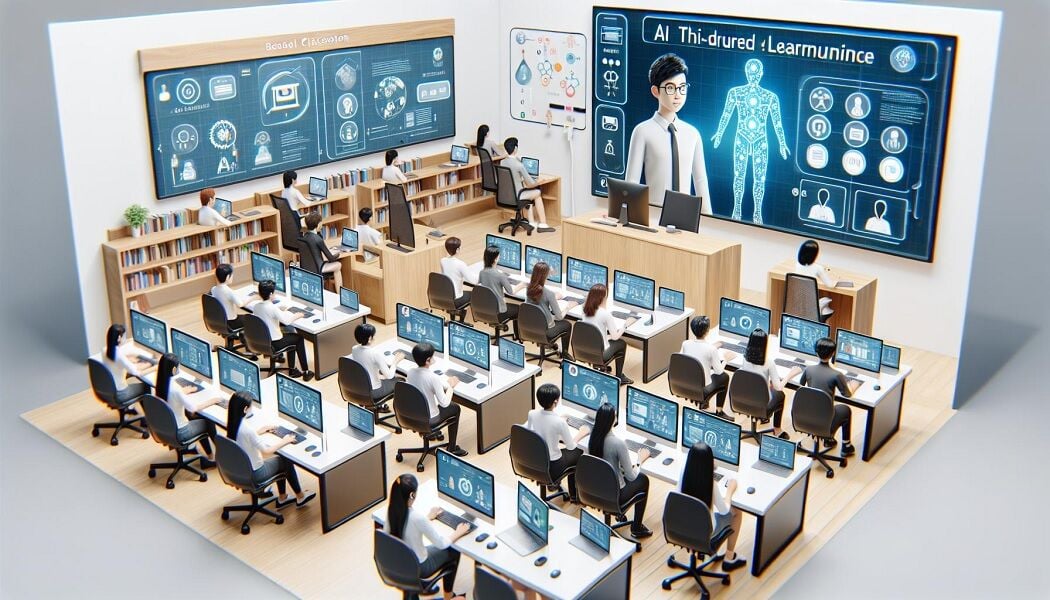
In the transformative landscape of Thai education, artificial intelligence (AI) plays a pivotal role, fundamentally altering how knowledge is imparted and acquired. With the promise of making learning more accessible and personalised, AI technologies are at the forefront of this educational revolution.
Virtual classrooms and online learning
The advent of AI has ushered in an era of virtual classrooms and online learning opportunities in Thailand, breaking down geographical barriers and making education accessible to all. Imagine sitting in your home in a remote village and attending a physics class taught by a top educator from Bangkok. AI-powered platforms make this possible by hosting a myriad of courses online, ranging from basic subjects to advanced disciplines.
These digital platforms aren’t just about video lectures; they’re interactive spaces where you can engage in real-time discussions, get your doubts cleared, and even work on group projects virtually. Advanced AI algorithms track your learning pace, adjust the content difficulty level, and offer personalised revision plans to ensure you grasp the concepts thoroughly. This approach mirrors the one-on-one attention you would receive in a physical classroom but with the added flexibility of learning at your own pace and convenience.
Adaptive learning and intelligent tutoring systems
How AI is changing education in Thailand is nowhere more evident than in the realm of adaptive learning and intelligent tutoring systems. These AI-driven platforms are transforming the traditional one-size-fits-all teaching model into a personalised learning experience that caters to individual student needs and learning styles.
Intelligent tutoring systems use AI to simulate one-on-one tuition sessions. They provide you with customised feedback, guide you through complex problems step by step, and present topics in ways that suit your learning preferences. Whether you’re a visual learner who thrives on diagrams and videos or someone who prefers text-based explanations, these systems adapt to serve you best.
Moreover, adaptive learning platforms analyse your performance data, identifying strengths and weaknesses. They adjust the difficulty level of exercises in real-time, ensuring that you’re neither bored with easy tasks nor overwhelmed by challenging ones. This dynamic approach helps in bridging knowledge gaps more efficiently, making learning a truly tailored experience.
The integration of AI tools and platforms in Thai education is not just enhancing the learning experience; it’s redefining it. By leveraging the power of AI, students across Thailand are discovering new ways to learn, engage, and succeed in their educational journeys.
Challenges and opportunities
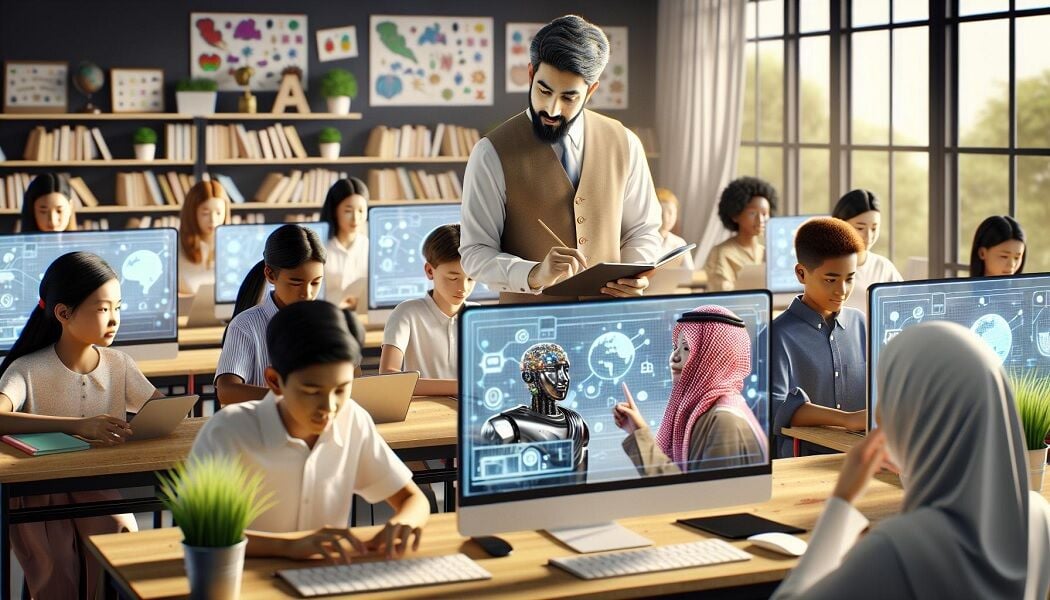
Addressing technological disparities
As you delve into how AI is revolutionising education in Thailand, it’s crucial to tackle the technological disparities head-on. The digital divide poses a significant challenge, with unequal access to technology and high-speed internet affecting students and schools across different regions. However, this obstacle also presents a unique opportunity to re-imagine the distribution of educational resources. The integration of AI in education isn’t just about leveraging advanced technology; it’s about ensuring every student, regardless of their geographical location or economic background, has access to innovative learning tools. Strategies such as mobile learning platforms and AI-powered offline content can help bridge this gap, making education inclusive and accessible for all.
Training educators for AI integration
Another pivotal aspect in the transformation of Thai education through AI is empowering educators. It’s not just about the tools but how effectively they’re utilised in teaching and learning processes. Training educators to integrate AI into their teaching methodology is paramount. This involves not only familiarising them with the technology but also equipping them with the skills to create personalised learning experiences. The opportunity here is vast, offering the potential to enhance teacher-led instruction with AI-driven insights and adaptive learning paths tailored to each student’s needs. By investing in professional development and continuous learning opportunities for teachers, Thailand can fully harness the potential of AI in education, making learning more engaging, effective, and aligned with the demands of the 21st century.
As we look ahead to the future of education in Thailand, it’s not just about technology and AI. It’s also about nurturing creativity and artistic expression. Discover your creativity with Bangkok’s art academies, where traditional art forms meet modern techniques. These institutions serve as a testament to the enduring value of the arts in a rapidly digitalising world. They highlight the balance between embracing technological advancements in education and preserving the intrinsic human elements of learning. So, as we navigate towards a future where AI and creativity coexist, let’s continue to imagine, innovate, and inspire.



